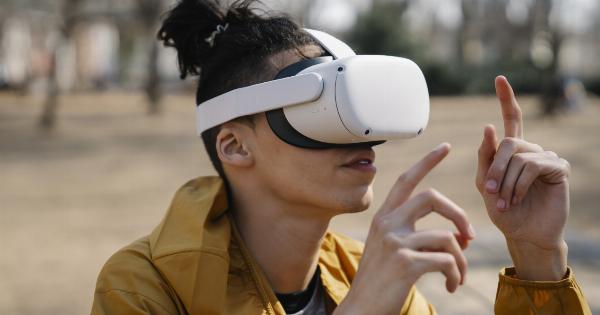From a young age, humans are inherently curious creatures. We constantly seek answers to questions about the world around us, even if it means going to great lengths to find them.
This insatiable need for knowledge has led to great scientific discoveries, technological advancements, and a better understanding of the universe we inhabit.
The Evolution of Learning
The pursuit of knowledge is not a new phenomenon. In fact, our ancestors were just as curious and eager to learn as we are today. However, the methods of acquiring knowledge have evolved significantly over the years.
Before the advent of the written word, stories and traditions were passed down orally. Early civilizations developed writing systems, allowing knowledge to be recorded and preserved for future generations.
With the invention of the printing press in the 15th century, access to knowledge became more widespread. Today, the internet has made it possible for anyone with a device and an internet connection to access an abundance of information.
The Benefits of Learning
Learning is not only essential for personal growth and development, but it also has numerous benefits for society as a whole. Education can increase employability, boost economic growth, and improve social mobility.
It also promotes critical thinking and innovation, which can lead to advancements in various fields, including medicine and technology.
Additionally, learning can have a positive impact on mental health. Studies have shown that engaging in learning activities can reduce the risk of cognitive decline and improve overall well-being.
The Power of Curiosity
Curiosity is the driving force behind learning. It encourages exploration and experimentation, leading to discoveries and breakthroughs in various fields. However, some may argue that curiosity alone is not enough to acquire knowledge.
It must be coupled with a desire to learn and a willingness to put in the effort required to gain a deep understanding of a subject.
Despite this, the power of curiosity should not be underestimated. It has led to some of the most significant scientific discoveries in history, from the discovery of penicillin to the development of the internet.
The Role of Education
While curiosity and the desire to learn are essential for acquiring knowledge, education also plays a critical role in the learning process. It provides the structure and guidance necessary to gain a deep understanding of a subject.
Education institutions offer courses, degrees, and certifications that validate knowledge and provide opportunities for professional growth and development.
However, the traditional education system has its limitations. It is often criticized for being rigid and outdated, failing to keep up with the constantly changing job market and advancements in technology.
The rise of online learning platforms and alternative education models has challenged the traditional education system, offering a more flexible and accessible approach to learning.
The Dark Side of Knowledge
While knowledge can be a powerful force for good, it can also be used for nefarious purposes.
The misuse of knowledge can have catastrophic consequences, from the development of weapons of mass destruction to the perpetuation of misinformation and propaganda.
Additionally, the pursuit of knowledge can lead to academic elitism, where those who possess a higher level of knowledge are considered superior to those who do not.
This creates a divide in society, contributing to social inequality and marginalization.
The Importance of Lifelong Learning
Learning is not just for the young. Lifelong learning is essential for personal and professional growth, ensuring that individuals remain relevant in a rapidly changing job market. It also promotes cognitive function and overall well-being.
The rise of online learning platforms and alternative education models has made lifelong learning more accessible than ever before.
Individuals can now learn at their own pace and on their own terms, allowing for a more personalized approach to education.
The Future of Learning
The future of learning is constantly evolving. Advancements in technology and the rise of alternative education models are changing the way we acquire knowledge and learn new skills.
One emerging trend is the use of virtual and augmented reality in education. These technologies offer immersive learning experiences, allowing individuals to explore complex concepts in new and engaging ways.
Additionally, the rise of Artificial Intelligence (AI) presents new opportunities for personalized learning.
AI algorithms can analyze individual learning patterns and suggest personalized learning paths, ensuring that individuals receive the most relevant and effective learning experiences.
Conclusion
The pursuit of knowledge is a fundamental human trait that has led to great advancements and breakthroughs throughout history.
However, it is important to acknowledge the potential dark side of knowledge and the importance of lifelong learning to remain relevant in a constantly changing job market.




























